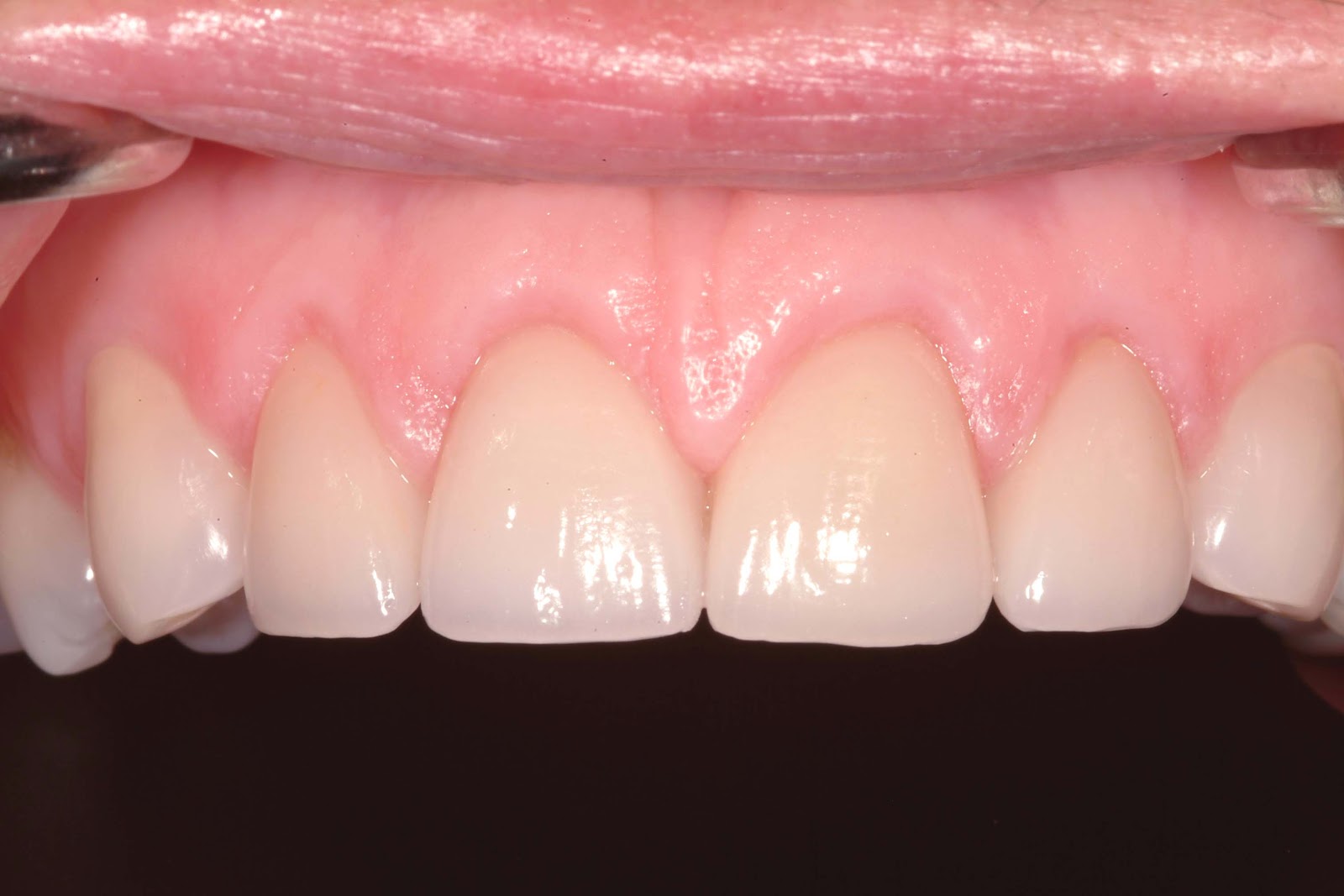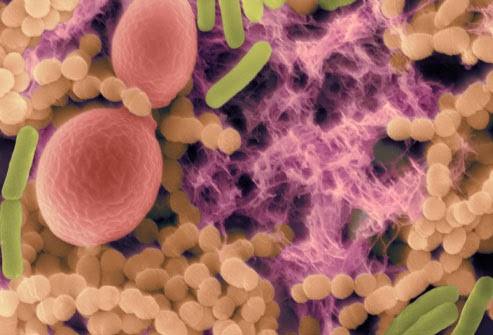Often obese or overweight have a different meaning for everyone. But in a general sense obesity significantly overweight that far exceeds the desired weight.
Not infrequently we often been confused with the understanding of obesity and overweight, whereas the second term has a different understanding of each other.
Obesity (overweight) is a condition where there is accumulation of excess body fat, so the weight is well above one's normal and can be harmful to health.
While overweight (overweight) is a condition in which a person's weight exceeds the normal weight.
Obesity can occur due to, among others, the imbalance between energy intake with energy out. Body Mass Index (BMI) or body mass index (BMI) has been recognized as the most practical way to determine the level of overweight and obesity in adults under the age of 70 years.
Body mass index is a calculation is done to determine whether you are included in the normal weight, less, or excess (obesity).
Not Mean Healthy Body Fertile
Stigmatic public on the human body shape figure skinny always connoted personal representative who is always under pressure or stress. Not necessarily. Instead of stress or depression is triggered obesity and overweight.
Dr Paresh Dandona of Kaleida Health in Buffalo, New York, found that people who are obese tend to have higher stress levels than those who have weight in the normal category. Paresh also showed that fatty foods could increase stress and faster influential to people overweight.
On the discovery of dr. Paresh tested to ten people who have a normal weight category and eight people who have weight obese category. Experiments done by providing nutritional intake 1,800 calories consisting of hamburgers, fries, soft drinks, and a few slices of apples to all trial participants. Then proceed with the testing process providing test questions to all 18 questions to the participants.
As a result, within a period of two hours all participants have increased stress in solving test questions given. Then later one hour later, the ten participants trials that have been normal weight category regardless of the condition of normal stress alias. Yet another eighth trial participants who have weight categories obesity, depression stress condition is still ongoing even increasing.
Obesity & Complications
As we know, chronic stress conditions with very high frequency intervals can lead to some deadly diseases such as, among others, cancer and heart disease and even stroke. Where in this case in particular has a direct correlation with symptoms of hypertension.
Elucidation of the mechanism of this case because obesity is a major factor that is flexible. Where the flexibility aspect a little more influence blood pressure and also the development of hypertension. Approximately 46% of patients with a body mass index values as high as 27 are hypertensive.
Framingham study has found that an increase of 15% body weight can lead to an increase in systolic blood pressure by 18%. Compared with those with normal weight, people who are overweight by 20% at risk of an eight-fold greater against hypertension.
Some diseases are triggered from obesity include:
Coronary Heart Disease (PKH) / Coroner Heart Disease (CHD)
Approximately 40% of coronary heart disease events occur in a person with a Body Mass Index values above 21, but did not rule out the disease can actually be prevented.
stroke
Being overweight is a major risk factor for stroke. Obesity (especially around the stomach / abdomen) may increase the risk of stroke (this condition does not depend on the value of Body Mass Index).
Gallbladder disease
Obese tend to be more susceptible to gallstones.
Osteoarthritis (OA)
Being overweight is associated with osteoarthritis in the joints of the hands and knees. However, the limitations of exercise capacity in patients with osteoarthritis bit much also take a role on the incidence of overweight.
cancer
Obesity can increase the risk of certain cancers. A study conducted by the American Cancer Society explains that death from prostate cancer and colon-rectal (colorectal) is increased in obese men, whereas endometrial cancer, uterus, cervix (cervical), and ovaries (ovarian) increased in obese women. Compared with normal weight women during the post-menousal, obese women have a higher risk of breast cancer.
Disorders (disorders) other
Obesity is also associated with varieses vein, some hormonal disorders and infertility.
In addition, overweight and obesity are closely related to an increased risk of a number of complications that can occur individually or simultaneously.
As was mentioned earlier, the morbidity can be high blood pressure or hypertension, lipid disorders or dyslipidemia fraction indicated the increase in total cholesterol levels, heart disease or cardiovascular disease, stroke, type II diabetes, a disease gallblader or gall bladder disease, respiratory dysfunction, the buildup of uric acid crystals in the tissues and joints of the body or gout, joint pain or osteoarthritis, and certain types of cancer.
But the chronic diseases that most often accompanies obesity is type II diabetes, hypertension, and hypercholesterolemia which is further implications of dyslipidemia.
Data from NHANES (National Health and Nutrition Examination Survey) III, 1988-1994, showed that two-thirds of adults are overweight and obese patients (Body Mass Index score: 27) suffered from at least one of the many chronic diseases as well as the other 27% of them suffer two or more diseases.
Then What ?
A person becomes obese is not only caused by a single factor, but rather triggered from various aspects, including dietary factors, lifestyle factors, cultural factors, genetic factors, gender factor, and factor patterns.
But the factor that has the most trigger substance is the selection of lifestyle. Fast food (fast food), tools that facilitate the work to create the habit of working patterns can also make an inactive body fat.
Experts agree that in the life of modern society-stress and diet modern lifestyle as well as prepared foods or do not have the time to exercise and the other lead to excessive accumulation of body fat.
Behavioral therapy is a method used to manages or modify your diet with exercise and physical activity in obese patients.
Thus, the therapy is expected to overcome the barriers to patient adherence to a healthy diet by taking the way of therapy or diet and exercise.
Therapeutic strategies are as follows: self-assessment or self-monitoring, control stress, control stimuli (stimulus), troubleshooting, emergency or contingency management, cognitive overhaul (cognitive restructuring), and social support. One thing to remember is that these strategies should be made personally tailored to the needs of the patients concerned regarding strategies for diet and exercise.
Drastic changes in a patient with a normal diet is very difficult, the feeling against the deprivation of pleasure, which in turn can lead to frustration. In most cases it can lead to an increase in weight.
Here is a guide to help the solution to obesity:
Eat less fat maximum of 30% of the total number of calories consumed. Reducing fat will reduce calorie intake and increase weight loss. It also may limit or prevent the onset of 'eating the wrong effect'. Because fat is the largest source of calories.
The food menu is now obviously far different from the diet of the previous era. If the first era of more foods containing carbohydrates such as cakes with only the main ingredient of the flour, the modern era now besides flour, too much dinambahkan margarine, oils and other types of fat.
As already known, the fat is the biggest producer of calories per gram, compared to other sources of nutrients such as carbohydrates and proteins.
So do not be surprised, if the high fat intake is the cause of the excess energy intake, which when buried can cause overweight.
From observations it appears that someone with overweight really like fatty foods. The average consumption of fat they are in the top 50% of total calories.
The process of digestion begins in the mouth, where food is converted into a smaller form, and then forwarded to the stomach. With the help of enzymes, food in the stomach is broken down into its components, such as proteins, carbohydrates, and fats.
Reduce your intake of calories per day than usual diet (approximately 600 kcal). The body always require basic nutritional intake, not always of the quantity of intake that much. But more effectively obtained from the diet quality.
The main nutrients needed by the body are proteins, carbohydrates, and fats. Nutrients that occupies a vital portion needed for metabolism, build and repair body cells, and to get energy.
In addition to the main nutrients before, the body also requires minerals and vitamins to regulate fluid (electrolyte) body, bone growth, the formation of blood cells, helps metabolize and forming hormone / enzyme
Consuming a balanced diet, at least 3 times a day. Choose foods and beverages carefully will help you control the calories and the amount of total fat, saturated fat, cholesterol, salt, sugar and alcoholic beverages.
Expand activities. Before you make any changes in yourself, be sure that it would be beneficial. Increasing physical activity in general as long as 20 minutes of exercise can lower blood pressure, control diabetes, lowers cholesterol levels and reduce other health complications associated with being overweight. Definitely better than you spend 2 hours waiting in the salon or in the garage.
With regular exercise are generally more successfully lose weight and keep it off than those who do not practice regularly. And did not escape consult a doctor or related experts first before you start an exercise program.
One thing that is necessary and important to remember, the only way to lose weight is to use more energy than the energy consumed.
And the last one is the determination. Required persistence of implementation intentions effort invested. The fasting month is the right moment to implement this effort.
















